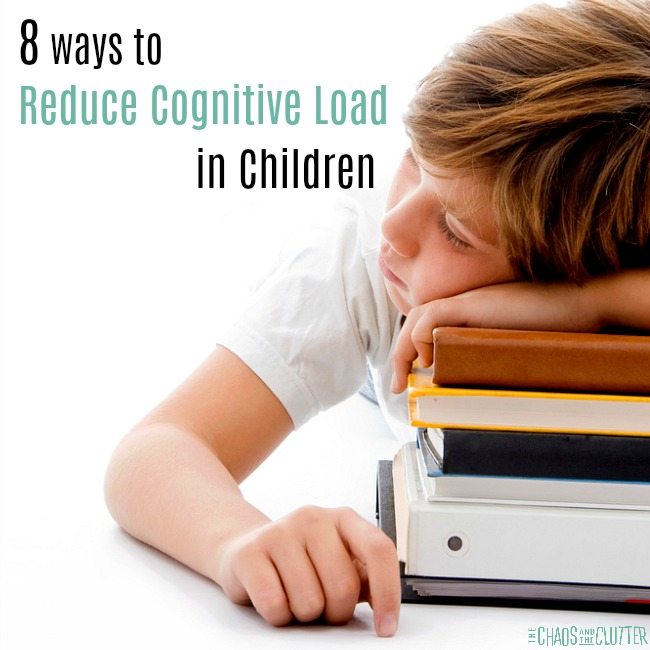Cognitive load may not be something you have heard of, but it is something that is likely impacting your child. Reducing cognitive load can reduce stress, make learning more effective and increase a child’s confidence.
If you find your child becoming easily distracted, anxious, stuck, or frustrated, cognitive load may be partly to blame. If homework battles are a problem in your home, you’ll want to read this. 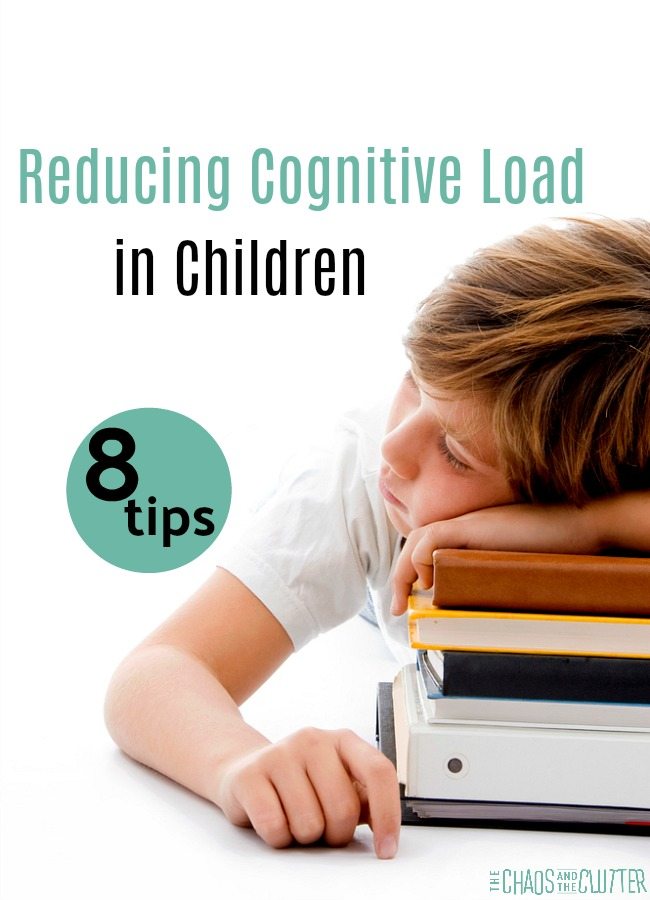
As humans, we do not have infinite capacity for working memory (mental space). It stands to reason that if demands placed on working memory are too high, a child will become frustrated, struggle to understand and may give up altogether. This is why putting in practise strategies for reducing cognitive load is important not only to ensure academic success, but also to ensure that the child’s confidence and self-esteem remain high. What may look to a parent or teacher as defiance or behaviour issues could actually be stemming from cognitive overload and fatigue.
One of the times when cognitive load can become more of an issue is when a child is learning something that take a lot of time and brain space. Examples of this would be things like when a child is learning to read, when a child is addressing past trauma in therapy, when a child is learning a new language, or when a child is involved in something like speech therapy or occupational therapy.
As a parent or teacher, it’s important to keep in mind everything that is going on in a child’s life. This will better help you understand why they may seem to be overwhelmed or be having a harder time with cognitive tasks than usual.
Ways to Reduce Cognitive Load in Children:
Lower Distractions
From visual distractions to noises to even smells and textures, distractions abound in our homes and classrooms. These can be particularly challenging to children who have sensory processing issues.
You can lessen distractions by lowering the noise in the room, reduce visual stimulation by keeping items and colours in the room to a minimum and staying away from fluorescent lighting, ensuring your child is wearing clothing that is comfortable for them and sitting somewhere they are comfortable. Minimize conversation. Be mindful of what smells are in the room. Noise cancelling headphones can also be helpful.
Frequent Brain Breaks
Brain Breaks have been one of our most effective strategies. We have been using them for years and have seen what a difference they make. To me, it only makes good sense. They help kids refocus, reset and get their brain working effectively again.
Brain breaks are critical for learning. One of our favourite resources for this is The Ultimate Guide to Brain Breaks. In it, you’ll discover what brain breaks are, when to use them, how to use them, and my favourite part: 60 brain break exercises with detailed instructions and pictures.
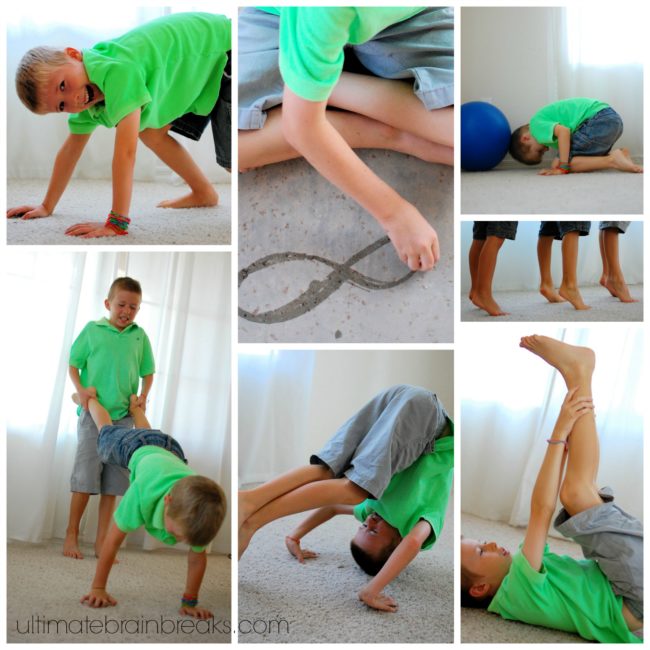
Establish and Maintain Routines
Routines allow children to feel secure and know what to expect. They take demands off their brain by not having to anticipate what may be happening next and also ensure good eating and sleeping habits which also help their brains.
An especially effective way to do this with all children, but especially those with special needs is to use a visual schedule. A visual schedule can be used at home or school and can prepare a child for what to expect. The visual element is less taxing for their brain than a long written out schedule because they can see at a glance when a meal, snack, quiet time, or learning time is coming. 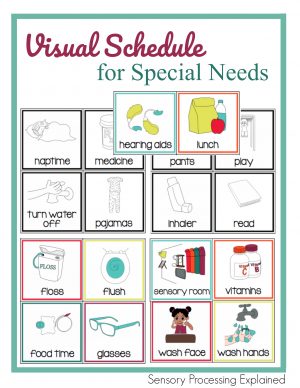
More Sleep
Getting adequate sleep allows children’s brains to grow and develop optimally and cuts down on attention and learning issues. It’s important for kids to get enough sleep for their age. This chart from the National Sleep Foundation can help you determine how much sleep your child needs. When kids are tired, it is harder for them to process new information and affects their memory.
Simplify
Simplify the instructions for the task or break the task down into small chunks that seem attainable to your child. Overwhelm can cause a child to go into fight, flight or freeze mode and then the brain is essentially offline and no learning can happen.
Use less words and if possible, use visuals. Give the child time to digest the information before requiring a task or response.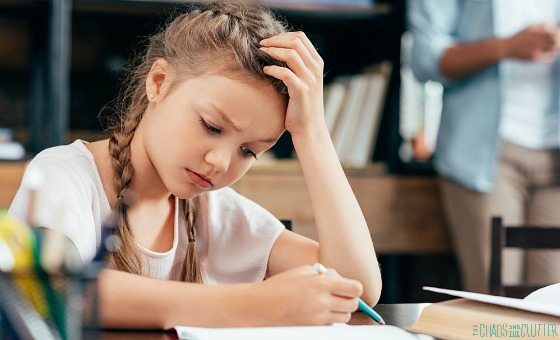
Prevent Cognitive Fatigue Before it Happens
If you see signs that your child is becoming irritated, distracted, starting to have negative self-talk, or showing other signs of overwhelm, intervene before negative behaviours or discouragement set in. Offer water, a snack or suggest a brain break. If these don’t seem to be enough to prevent the cognitive fatigue, it may be time to set the task aside for the day and move on to something less taxing on the brain.
Reduce Stress
Anxiety makes it hard to learn as do the effects of early childhood trauma. Instituting strategies to help your child reduce stress makes it easier for their brain to function. Ensuring that your child is in an environment where they feel safe helps them to use the executive functioning parts of their brain.
Do what you can to provide opportunities for them to talk about their feelings and activities to help them calm down. Providing items such as a stress ball or fidgets while they are completing their task can also help.
Reduce Cognitive Load in Other Areas
When a child is concentrating on learning something new or working on a big cognitive task, one of the things that helps is to reduce their cognitive load in other areas. What this looks like will vary from child to child and situation to situation.
If you are using these tips in the classroom for example, if you know that your students are learning lines for a play which requires a lot of memorization, you may want to ease off on the vocabulary or spelling tests or other things that are heavy on memory skills until they get a better grasp of the new material for the drama production.
If you are a parent and your child has just started learning to read, signing them up for their first piano lesson which will require them to also learn to read music is maybe not wise. Once they have a handle on reading, then introducing a new instrument will make things come more easily for them on both fronts.
Ultimate Guide to Brain Breaks Editable Visual Schedule
Editable Visual Schedule Noise Reducing Headphones
Noise Reducing Headphones
These 8 strategies can help in reducing cognitive load in children, which in turn can increase their confidence and skill and can greatly reduce anxiety. 